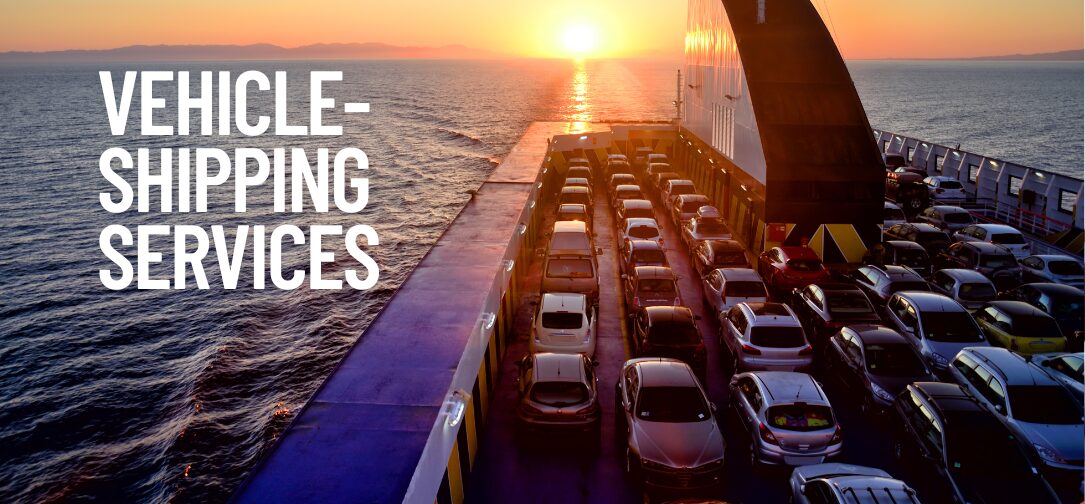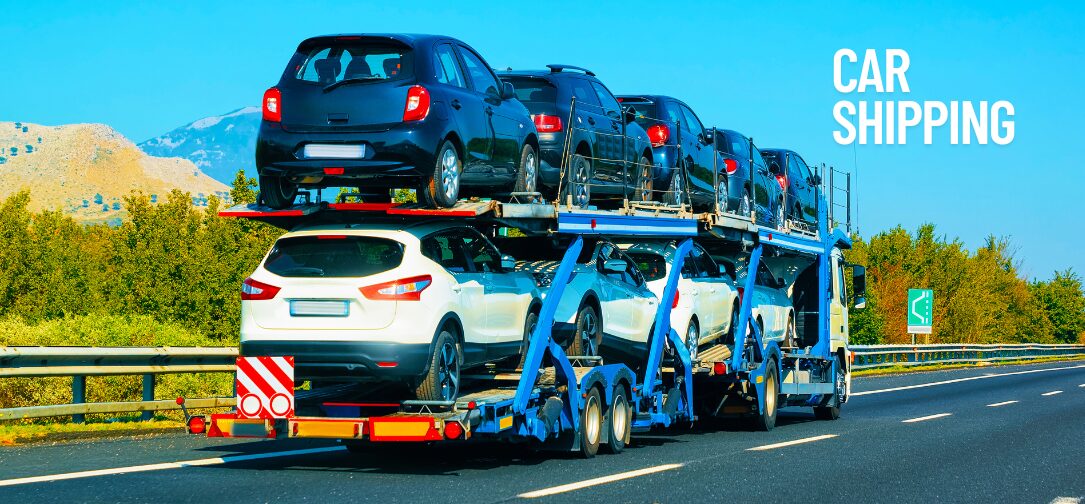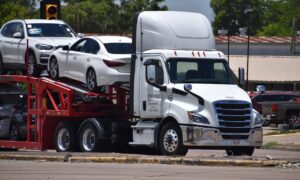The car shipping and vehicle transport industry is undergoing a transformative evolution in 2025, driven by technological advancements, sustainability imperatives, and shifting consumer expectations. This comprehensive analysis delves into the current state of the industry, emerging trends, and future projections, providing insights into how these developments are reshaping the landscape of finding a truly reliable vehicle-shipping service.
The Current Landscape of Car Shipping
Market Overview
As of 2025, the U.S. vehicle shipping services industry boasts a revenue-based market size of $9.9 billion, reflecting the sector’s robustness and critical role in automotive logistics.
The demand for reliable vehicle-shipping service options remains strong, fueled by factors such as increased vehicle sales, booming online car purchases, and a growing need for efficient relocation solutions across states and internationally.
Key Players and Services
The industry includes specialized auto transport companies, freight logistics firms, and digital marketplaces offering various service models , from open carrier shipping to enclosed, expedited, and door-to-door services.
Today, providing a reliable vehicle-shipping service means utilizing technology-enhanced logistics for better tracking, transparent communication, and enhanced customer satisfaction , pillars that define the leaders in this competitive market.
Technological Innovations Driving Change
Autonomous Vehicle Transport
One of the most exciting developments is the integration of autonomous technology into vehicle shipping.
In Texas, driverless semi-trucks are operating commercially along a 200-mile stretch of I-45 between Dallas and Houston, marking a major milestone in autonomous freight transportation.
This innovation directly addresses major industry challenges such as driver shortages, improving safety, and reducing operational costs.
Artificial Intelligence and Machine Learning
AI is revolutionizing vehicle logistics by optimizing route planning, predicting maintenance, and making real-time adjustments based on traffic conditions.
For example, Uber Freight leverages AI to connect truckers with continuous loads efficiently, minimizing empty return trips.
Incorporating AI helps companies offer a more reliable vehicle-shipping service, improving on-time delivery rates and reducing damage incidents.
Internet of Things (IoT) and Telematics
IoT devices installed in transport carriers provide real-time updates, temperature control monitoring (critical for luxury or sensitive vehicles), and predictive maintenance notifications.
With telematics, shipping companies offer their customers real-time GPS tracking, ensuring full transparency , a feature increasingly demanded by modern consumers looking for assurance when shipping high-value vehicles.

Sustainability and Environmental Considerations
Electrification of Transport Fleets
In 2025, electric vehicle (EV) adoption among transport fleets is gaining momentum. Cities are expanding EV charging infrastructure, even integrating them with curb management for seamless logistics operations.
Fleet electrification is not just an environmental mandate; it’s fast becoming a competitive advantage as customers lean toward eco-friendly shipping services.
Alternative Fuel Technologies
The industry is also exploring alternative energy sources like hydrogen fuel cells and biofuels.
By investing in these sustainable technologies, companies not only meet emerging regulations but also offer more environmentally conscious shipping options, appealing to the modern eco-aware consumer base.
Regulatory Landscape and Industry Challenges
Trade Policies and Tariffs
Navigating regulatory frameworks remains a complex challenge.
In recent developments, vehicle carriers are petitioning for relief from new U.S. port fees, which could cost foreign-built vessels up to $900,000 per ship.
These costs inevitably trickle down to the consumer, impacting the final pricing of vehicle-shipping services.
Autonomous Vehicle Legislation
The rapid advancement of autonomous vehicle technology demands new legal frameworks.
In the UK, new laws regulating fully-autonomous vehicles were recently passed, and self-driving cars are expected to be permitted on roads by 2026.
Regulatory clarity ensures safer roads and reliable integrations of new technologies into existing vehicle transport models.
Future Projections and Key Trends
Automotive Logistics Market Growth
The global automotive logistics market is projected to reach USD 336.89 billion in 2025, growing at a CAGR of 6.65% to USD 464.83 billion by 2030.
This growth is propelled by increased global vehicle production, digitization of supply chains, and rising cross-border trade volumes.
Personalized and On-Demand Shipping Services
Customers in 2025 expect customized, on-demand shipping solutions.
Whether it’s express door-to-door delivery or temperature-controlled luxury car shipping, those who provide highly personalized services backed by real-time support will lead the industry.
Companies offering a reliable vehicle-shipping service with personalized touchpoints stand to benefit from greater customer loyalty and higher referrals.
Rise of Digital Marketplaces
Digital platforms connecting vehicle owners with a network of vetted carriers are revolutionizing the industry.
These marketplaces provide transparent pricing models, reviews, real-time scheduling, and live tracking, making it easier than ever to secure trusted shipping services without traditional brokerage barriers.
Conclusion
Finding a reliable vehicle-shipping service in today’s dynamic landscape requires understanding the evolving technological, environmental, and regulatory factors reshaping the industry.
The future of vehicle transport lies in autonomous trucks, AI-powered logistics, IoT-enabled fleet management, sustainable operations, and highly personalized services.
Companies that embrace these innovations and commit to customer satisfaction, transparency, and sustainability will not only survive but lead the next era of global vehicle transport.
As the market grows and transforms, consumers have more opportunities than ever to select providers who can guarantee the safe, efficient, and eco-conscious transport of their vehicles, truly embodying what it means to offer a reliable vehicle-shipping service in 2025 and beyond.



































